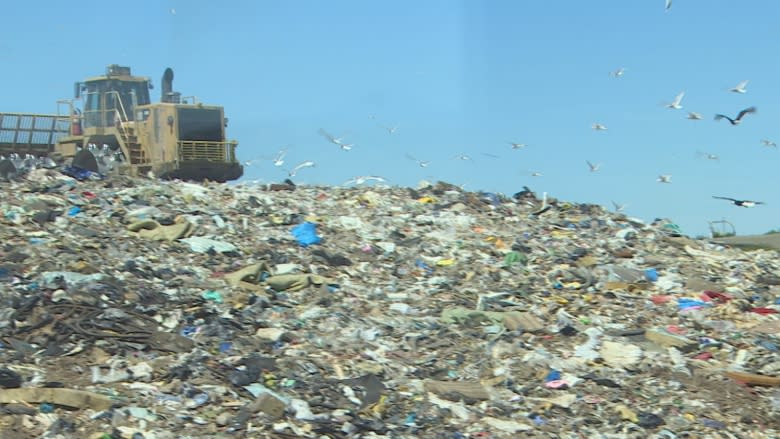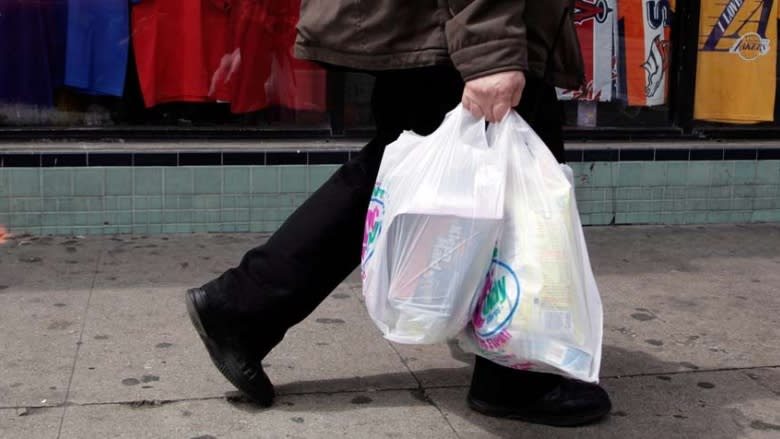Recyclable plastics could soon end up in Nova Scotia landfill
A change in policy halfway around the world means plastic bags that are supposed to be recycled — according to Nova Scotia law — could end up in a landfill.
Film plastics — such as plastic wrap, shopping bags and bread bags — are piling up at Halifax's material recovery facility in Bayers Lake Business Park because China is no longer importing the material and city officials can't find anybody else to recycle it.
In July, China notified the World Trade Organization it would stop accepting shipments of waste plastic, paper and other materials by the end of 2017 due to environmental and health concerns.
Matt Keliher, the solid waste manager for Halifax, told the CBC'sInformation Morning that 80 per cent or more of the city's recyclables were sent to China in recent years. Now the city is scrambling to find alternatives.
They've managed to do that with almost every kind of material — except one: film plastics. "We have a stockpile at our facility right now," Keliher said. "We're almost at full capacity."
Seeking permission
In August, the company that does recycling for Halifax, Miller Waste Systems Inc., sent a letter to Nova Scotia's Environment Department requesting special permission to throw its stockpile of plastics into a landfill.
The province responded that the landfill had to ask for permission, Keliher said, so GFL Environmental Inc., which runs a private landfill in West Hants, made the request.
The department has since promised to review the situation in the new year, Keliher said, but that'll be too late. It's already obvious there isn't enough room at the Bayers Lake facility to process the anticipated "Christmas boom," he said.
He said he wrote to the Environment Department's deputy minister, Frances Martin, requesting the review be moved up, but her response was to confirm the situation was under review.
Safety issue
Keliher said the city wouldn't need permission to ship its stockpile to a jurisdiction where plastics aren't banned from the landfill, but the costs would be higher — both financially and environmentally.
The sense of urgency is very real, Keliher said, because the plastics are starting to degrade in storage, and that's a safety issue. In some cases, the material has already caught on fire.
The Environment Department would not provide a timeline to CBC News for its decision, saying only that the province is aware of China's decision and is "open to working with municipalities, industry and others on diverting material."



